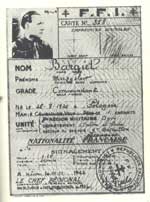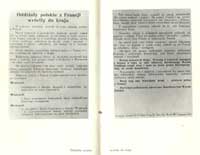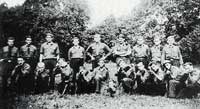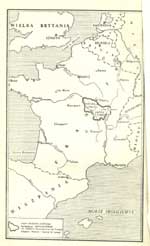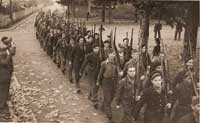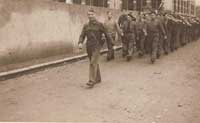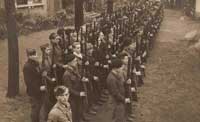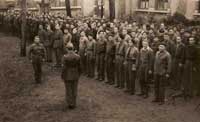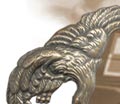 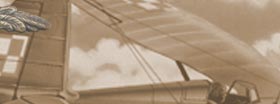 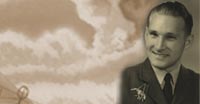 |
||||||||||||||||||
|
|
Born in the mining town of Zagorz (near Katowice) on 26th September 1920 to a working class family, Mieczyslaw was soon to leave the newly independent state of Poland. Wladyslaw and Catherine Bargiel left Poland with their seven sons in 1923 to seek employment in France and food due to the 1920s food shortage in Poland.
They settled in the mining village of Gautheret, Montceau-les-Mines in the department of Saône et Loire in the centre of France where Wladyslaw found work in the
Darcy colliery. Mieczyslaw went to school in Gautheret and left at just sixteen years old to join his father in the
mines.
The young Bargiel became an instructor/ military advisor in the Grunwald organization (PMP) in the area around
Montceau-les-Mines in the Department of the SaÔne and Loire with Sophie Cocotte and Yann Vitutski who made up the ‘cell’
or group (typically consisting of about eight people) within the Maquis and became known as Major Rogers.
Major Bargiel (Roger) and his small band of forty Maquis fought a major battle in the forest at Uchon to the north of Montceau-les-Mines and many were killed. It is likely this was a sweep by the Feldgendarmerie supported by Ukrainian soldiers (often called ‘Cossacks’) fighting for the Germans. In July 1944, they regrouped with other Maquis joining them and became known as the 9th Battalion FTP ‘Adam Mickiewicz’ after the Polish poet.
In July and August 1944 the Allies were trying to breakout of Normandy. Major Rogers was the head of the 9th Battalion and again they were to demonstrate their ferocity and win battlefield colours. On the 8th September 1944 the 9th Battalion with the Chariot group successfully attacked the retreating German army at Autun (65km southwest of Dijon) causing much damage to the German soldiers morale and transport network of the once great German Army. The Battalion's flag was donated to the Polish Army Museum in Warsaw. For Mieczyslaw Bargiel, the war ended in the autumn of 1945 and he decided to return to Poland to restore the country and assist in the development of the new communist government using his wartime experiences in the organization of the Maquis and the 9th Battalion. He lectured at the officers training college outside Warsaw. After eleven years of being a military instructor, he retired due to a serious accident while out on manoeuvres, but despite his handicap, he became active in politics and social causes. ‘Major Roger’ was a highly decorated officer and received many medals and honours for his wartime exploits. He was awarded the Cross of Grunwald, Cross of the Warriors of the Polish Resistance and the French Legion d’ Honneur to name just a few. On his death, General Jan Skowron recounted ‘Roger’s’ praise and respect by the men he commanded in France and also in Poland. He was a true patriot. |
|||||||||||||||||
Site hosting by Paston.
